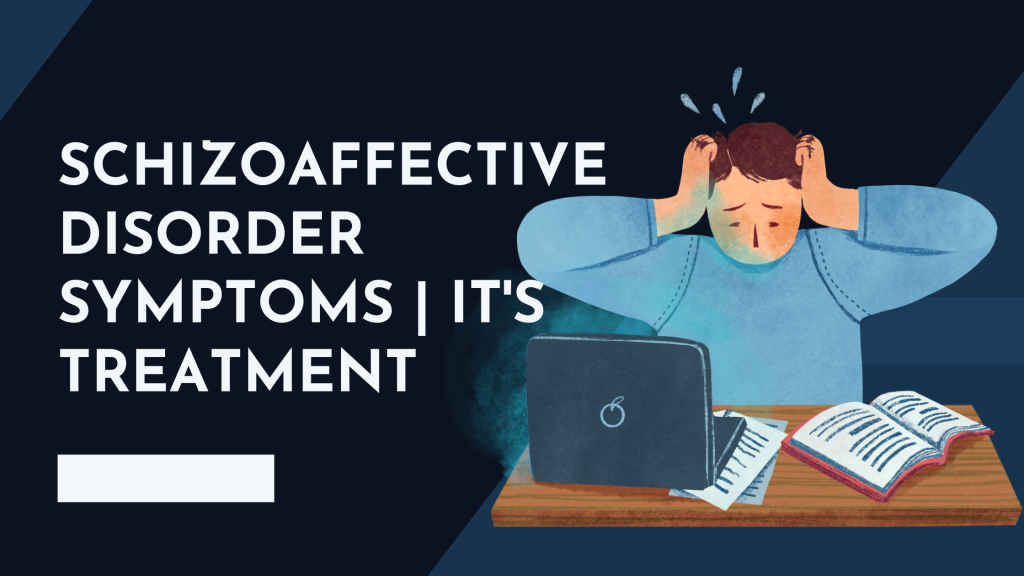Schizoaffective disorder is a mental health condition. It showcases a combination of schizophrenia and mood disorder symptoms. It is a chronic health condition that needs immediate medical attention.
Thankfully, schizoaffective disorder is manageable if diagnosed at the right time. If you or any of your loved ones have this disorder, this blog can be helpful. Keep reading as we shed light on this condition’s significant symptoms and treatment options.
Symptoms
The symptoms of schizoaffective disorder can develop at any age. Yet, most of the patients experience it during their early adulthood. Here are the top Schizoaffective Disorder Symptoms to look for.
Delusions – Having fixed, false beliefs, despite contradictory evidence.
Hallucinations – Hearing voices and seeing things that are not there in reality.
Depression – Constant feelings of sadness, worthlessness, or emptiness.
Disorganized thinking – The tendency to switch topics abruptly. Or giving completely irrelevant answers.
Unusual or bizarre behavior – Sudden euphoria, aggression, or sadness episodes.
Manic Mood – Sudden increase or decrease in energy, excess or no sleep for several days.
Lack of Personal Care – Not taking care of personal cleanliness or physical appearance.
Diagnosis
As mentioned above, schizoaffective disorder is completely manageable if diagnosed on time. Doctors usually undertake these methods to diagnose the severity of this mental condition.
· Physical examination
· Screenings for drugs and alcohol
· Imaging tests like CT scans or MRI
· Psychiatric evaluations to observe moods and thoughts
Treatment
Doctors usually undertake a combination of different treatment options to manage schizoaffective disorder.
Medication management may include mood stabilizers, antidepressants, and antipsychotic medicines. Mood stabilizers will help manage bipolar symptoms. Antipsychotic medicines will manage hallucinations and delusions. The antidepressants will help correct depressive tendencies.
Psychotherapy – Sometimes, doctors also recommend psychotherapy to treat schizoaffective disorder symptoms. It can include both – family-focused and cognitive behavioral therapy. It can help in managing and coping with these symptoms. Moreover, group therapy helps in reducing social isolation.
Life Skills Training – Doctors can recommend life skills training to improve the schizoaffective patient’s quality of life. Vocational training helps patients prepare for employment. Moreover, social skills will improve social communication and interaction skills.
That’s A Wrap!
So, this was all about schizoaffective disorder symptoms. The good part is that adults with schizoaffective disorder can lead an independent, everyday life. Last but not least – stay close to your loved ones and have patience. This condition may sometimes feel frustrating, but things will improve once you start treatment.

Leave a comment